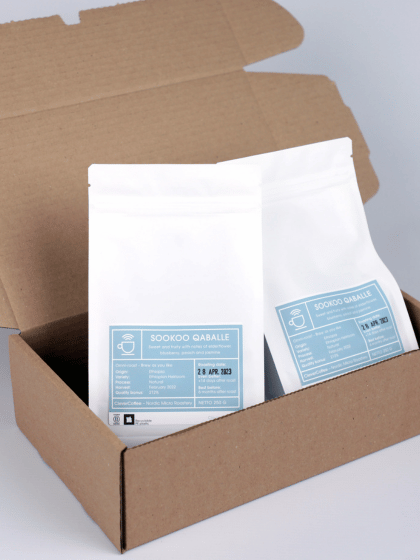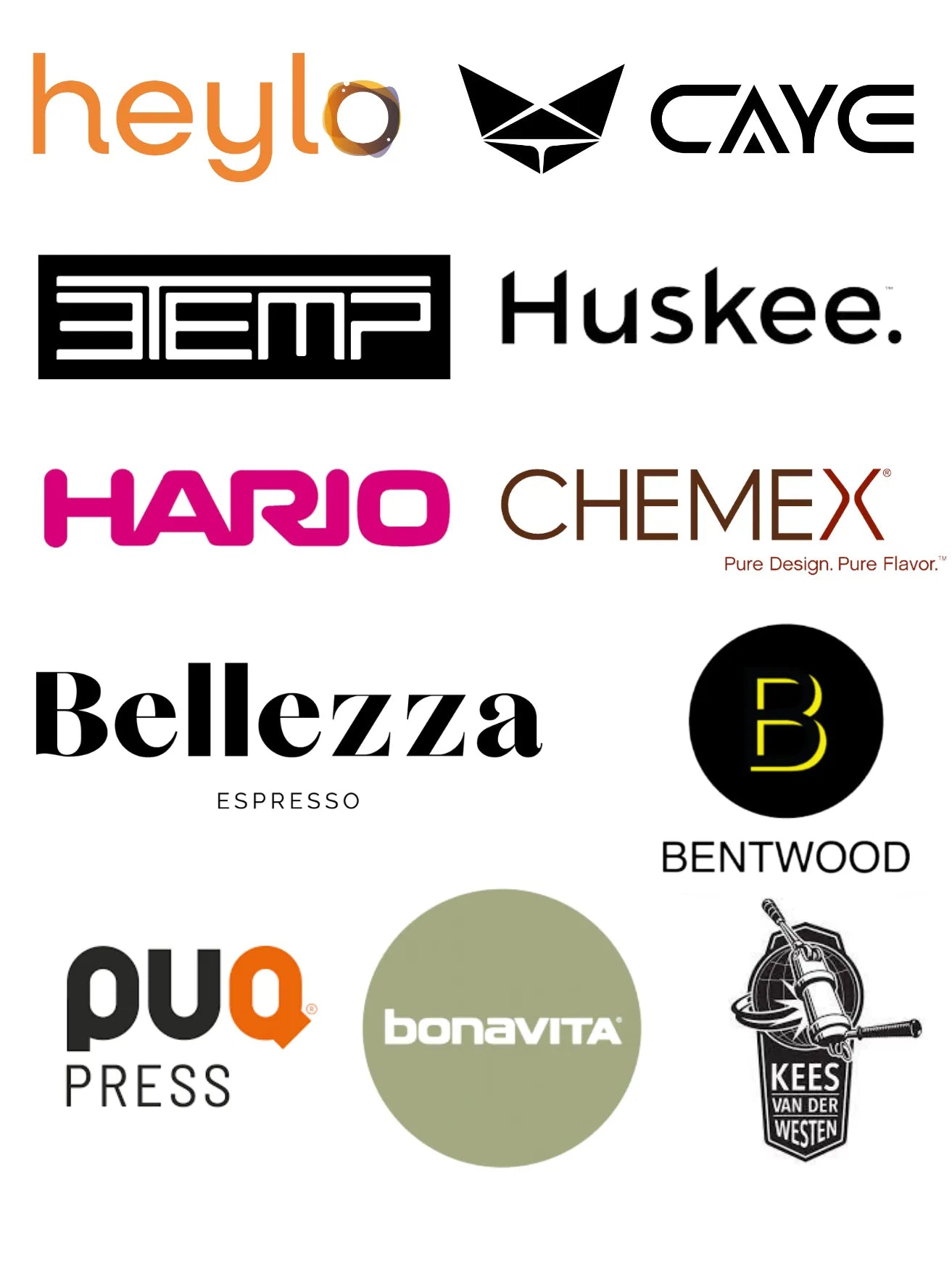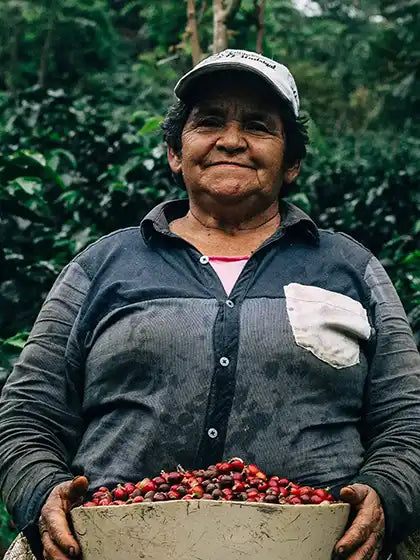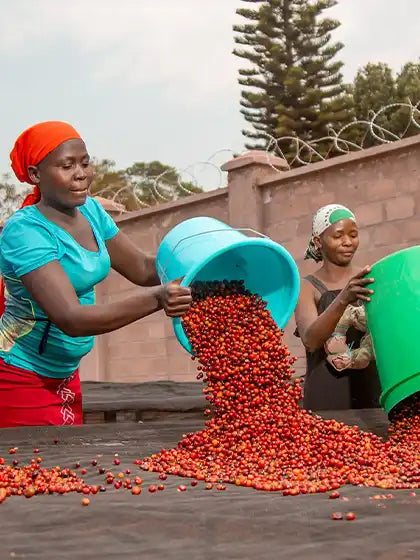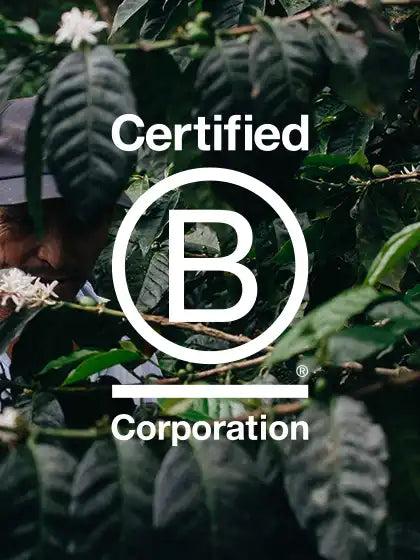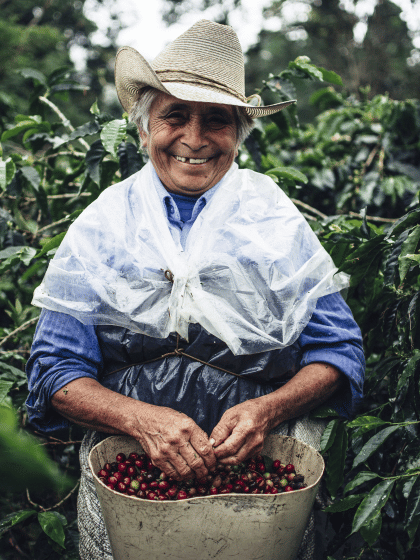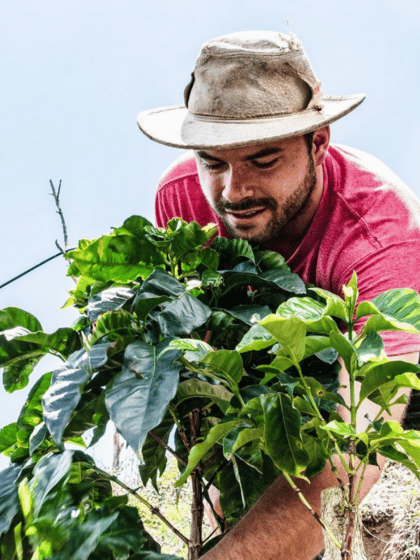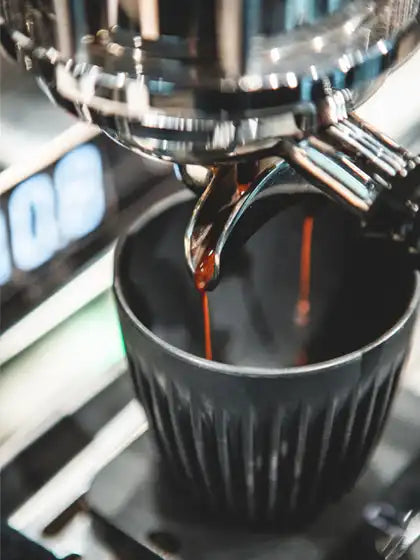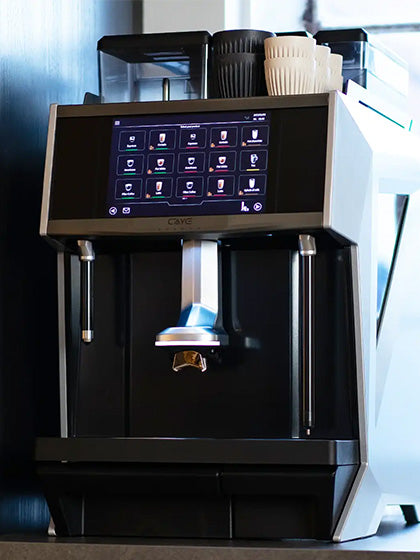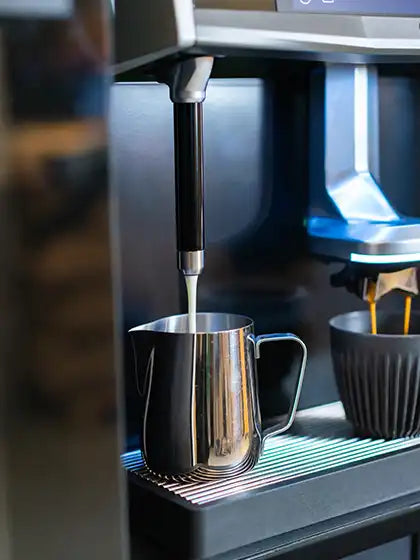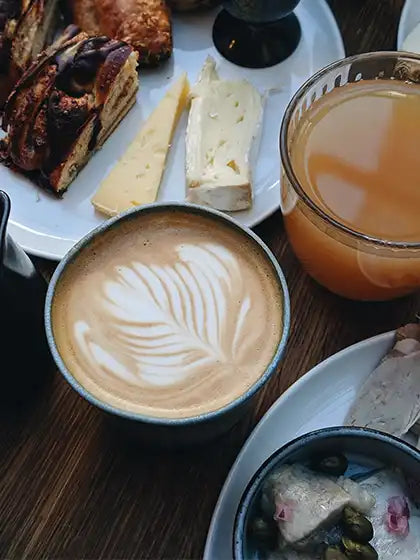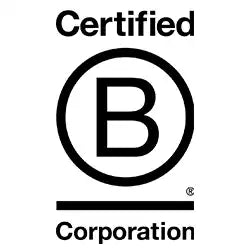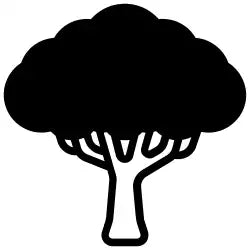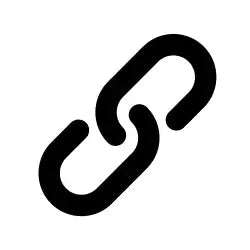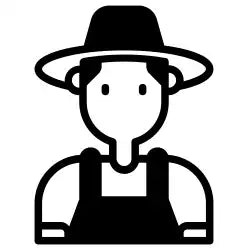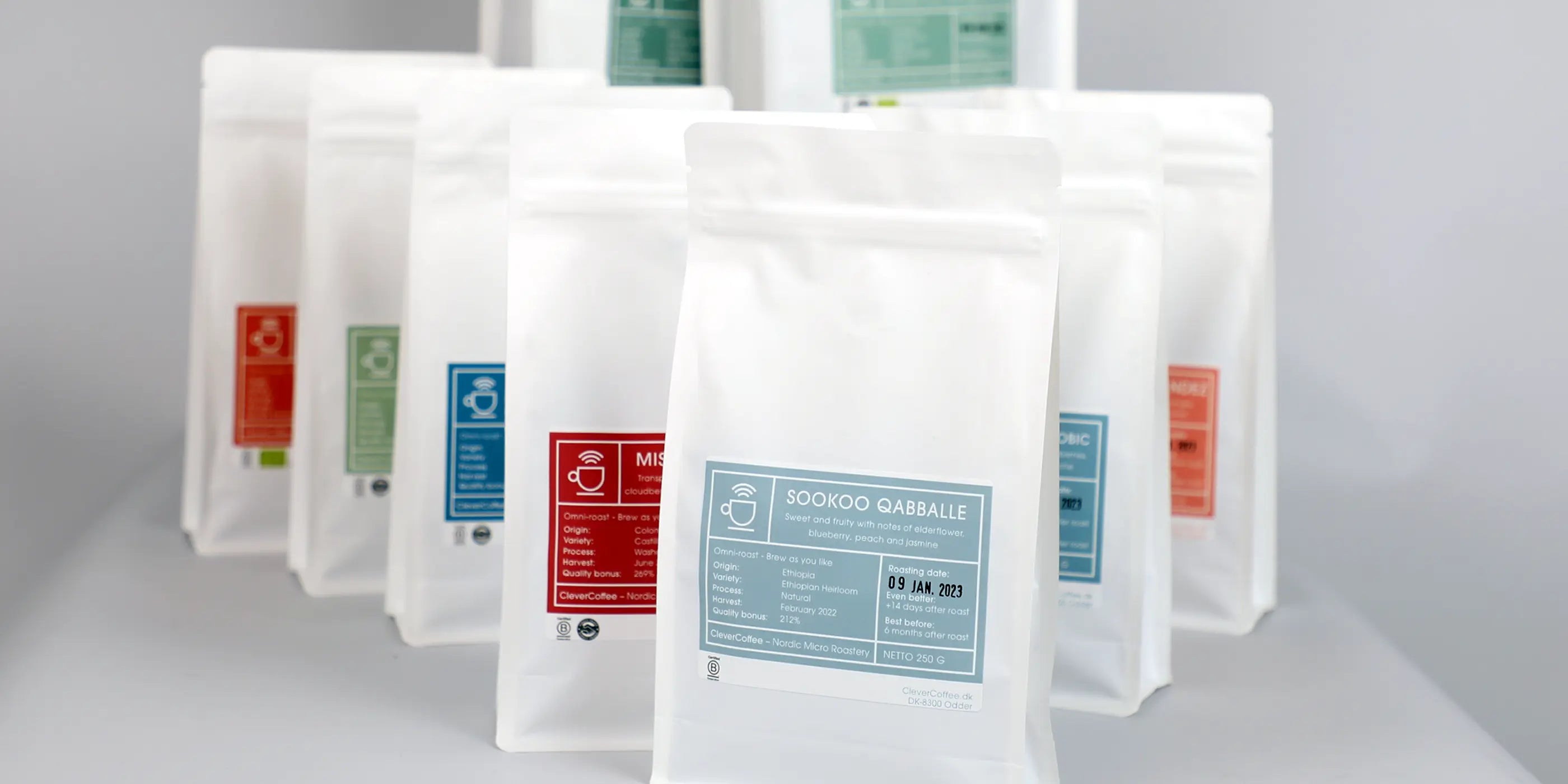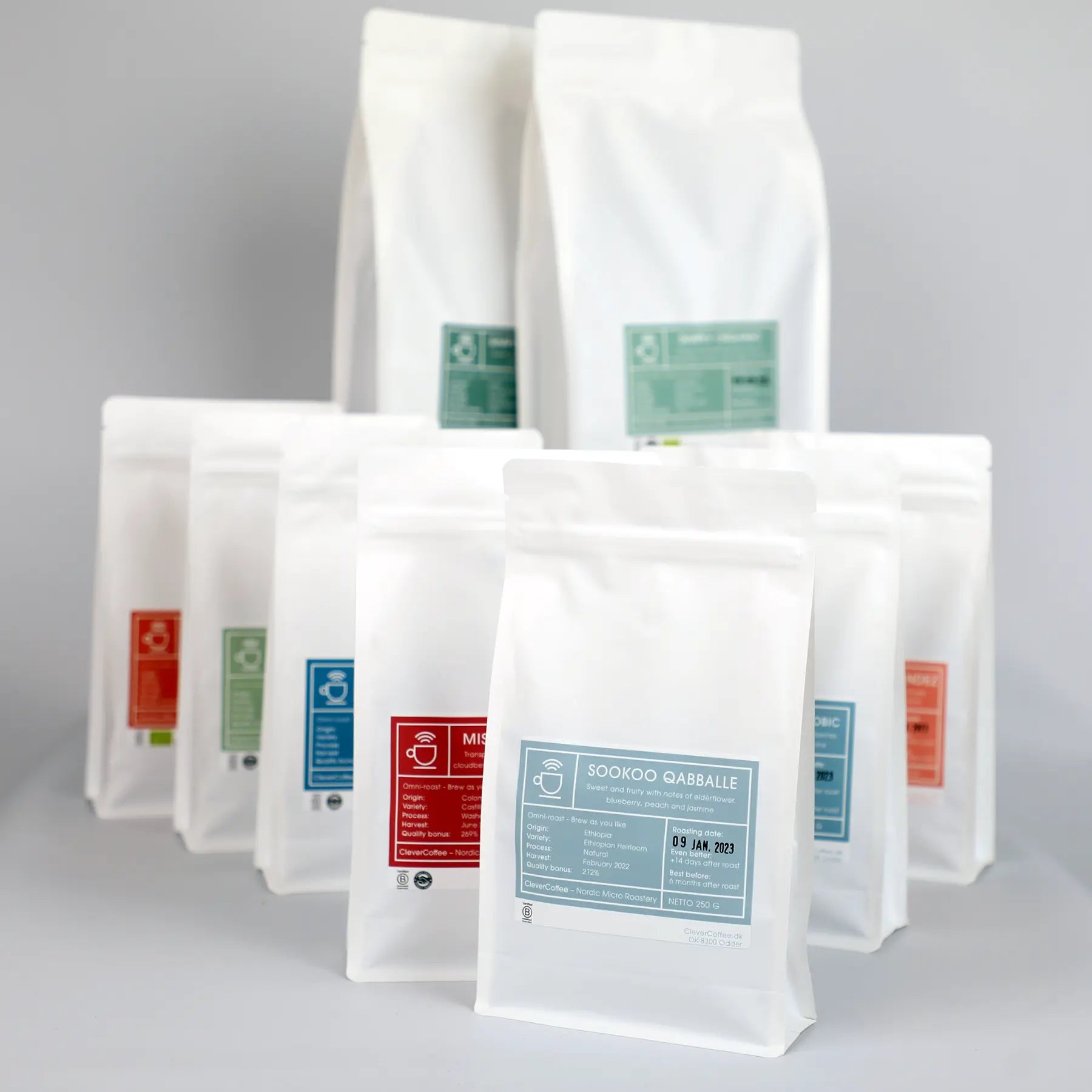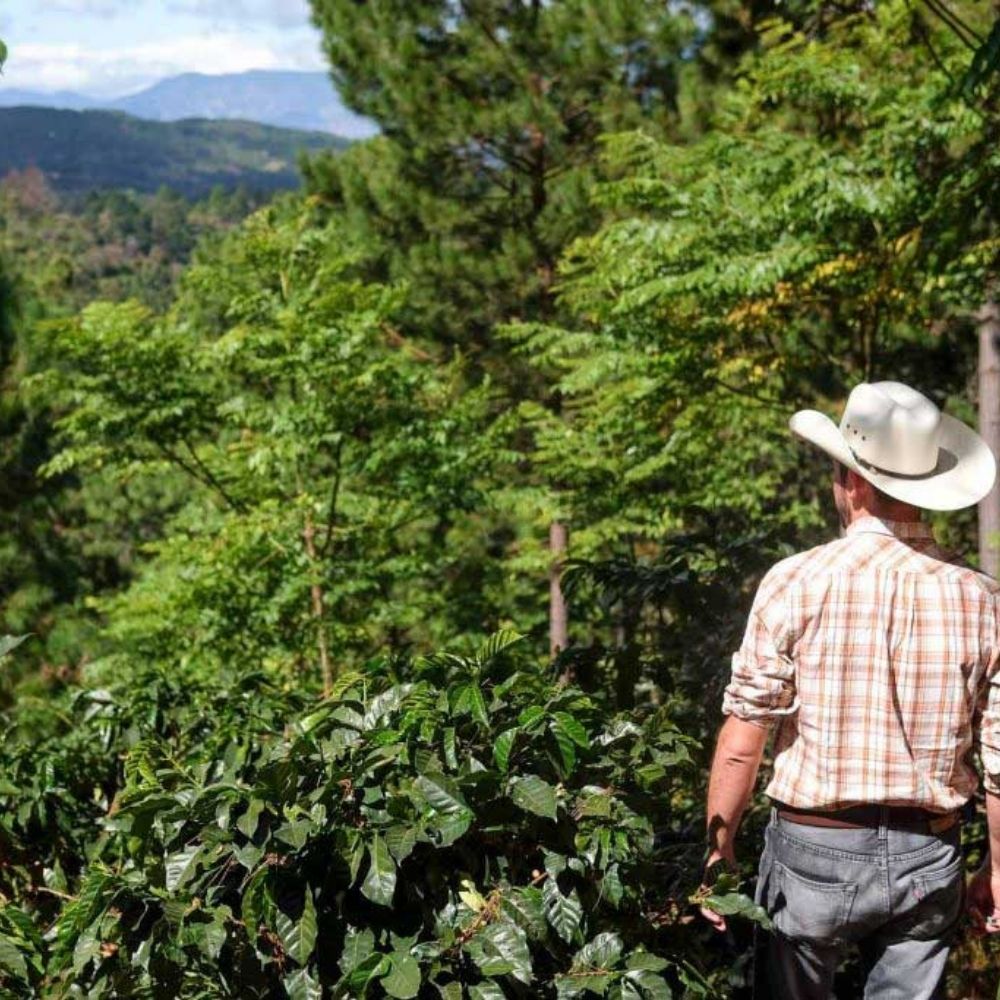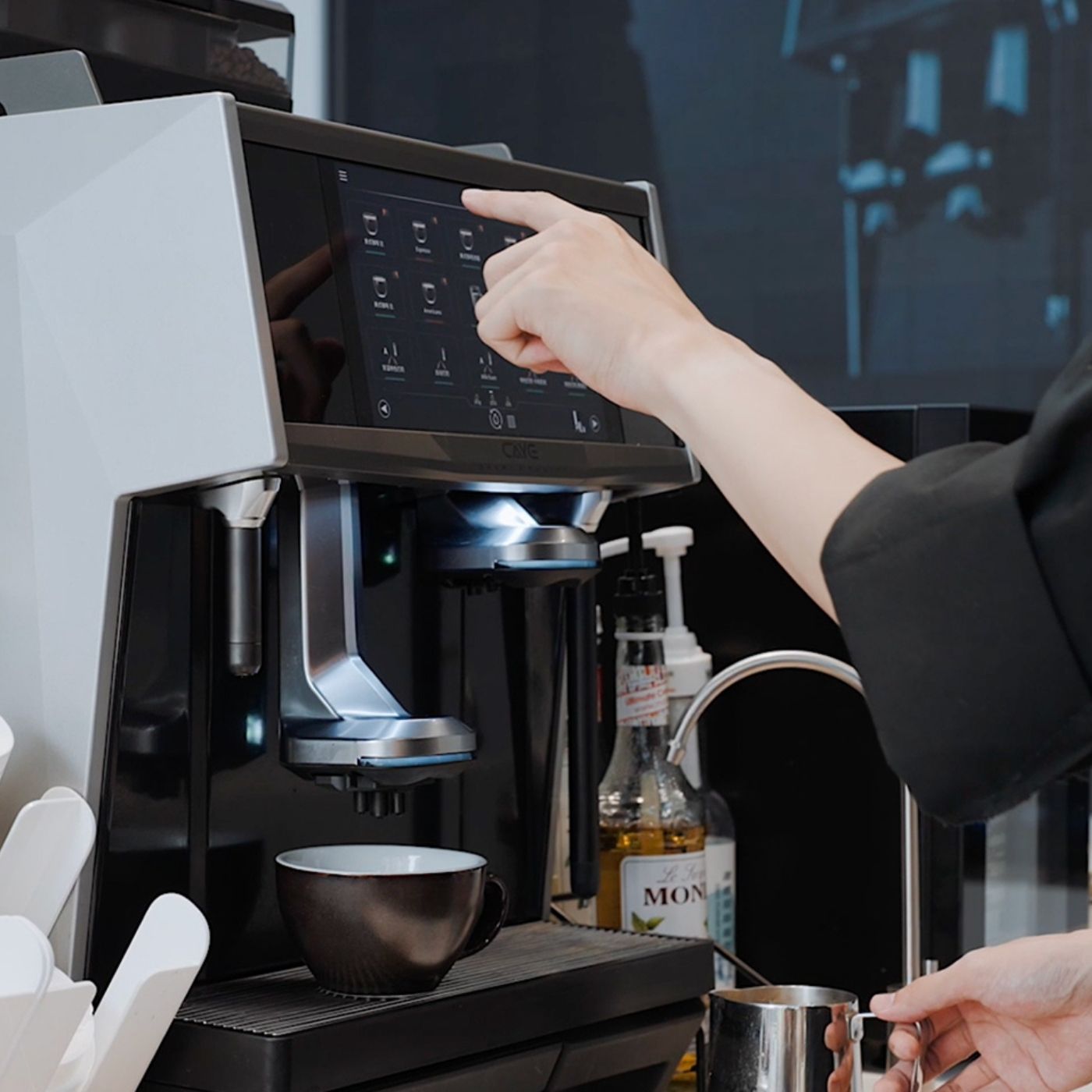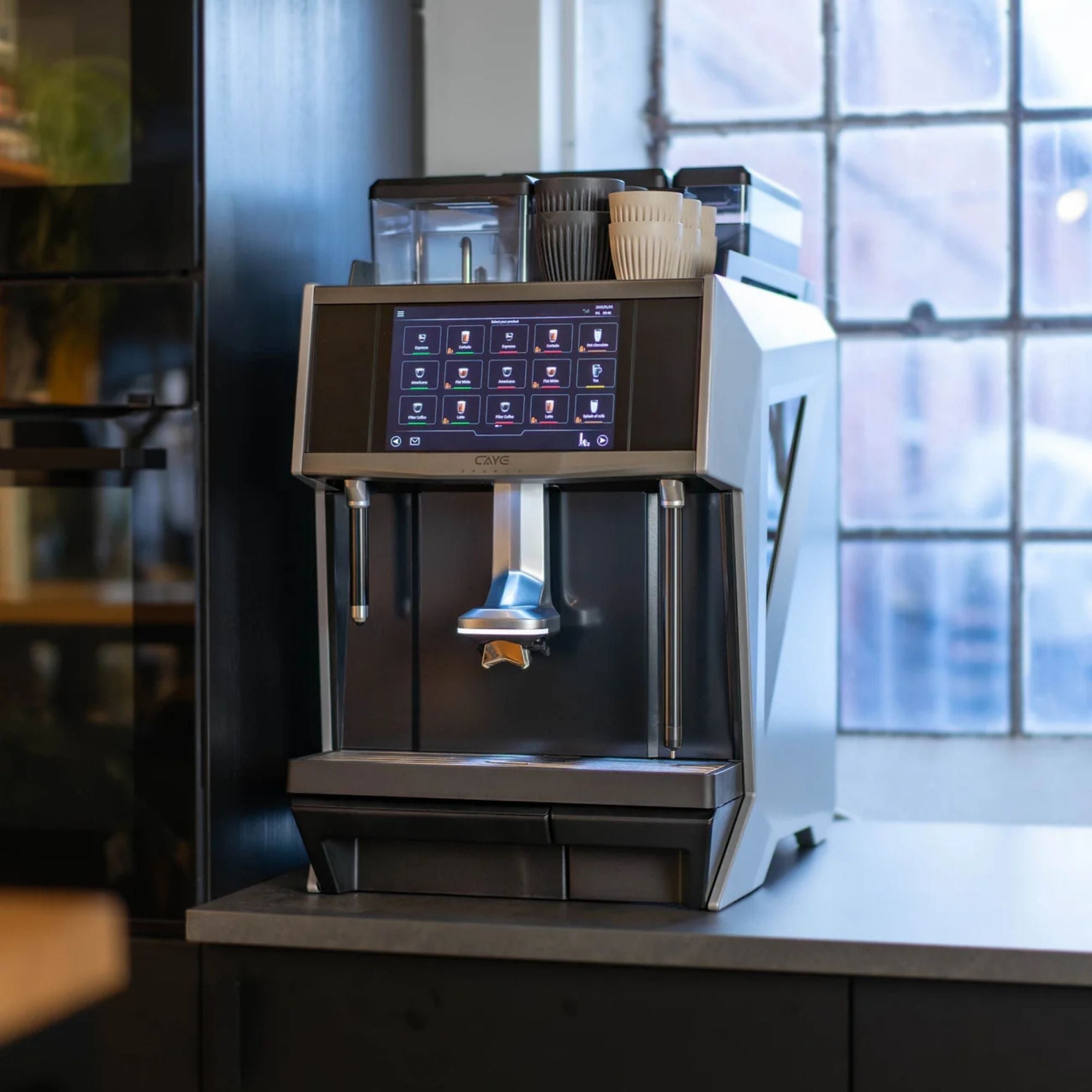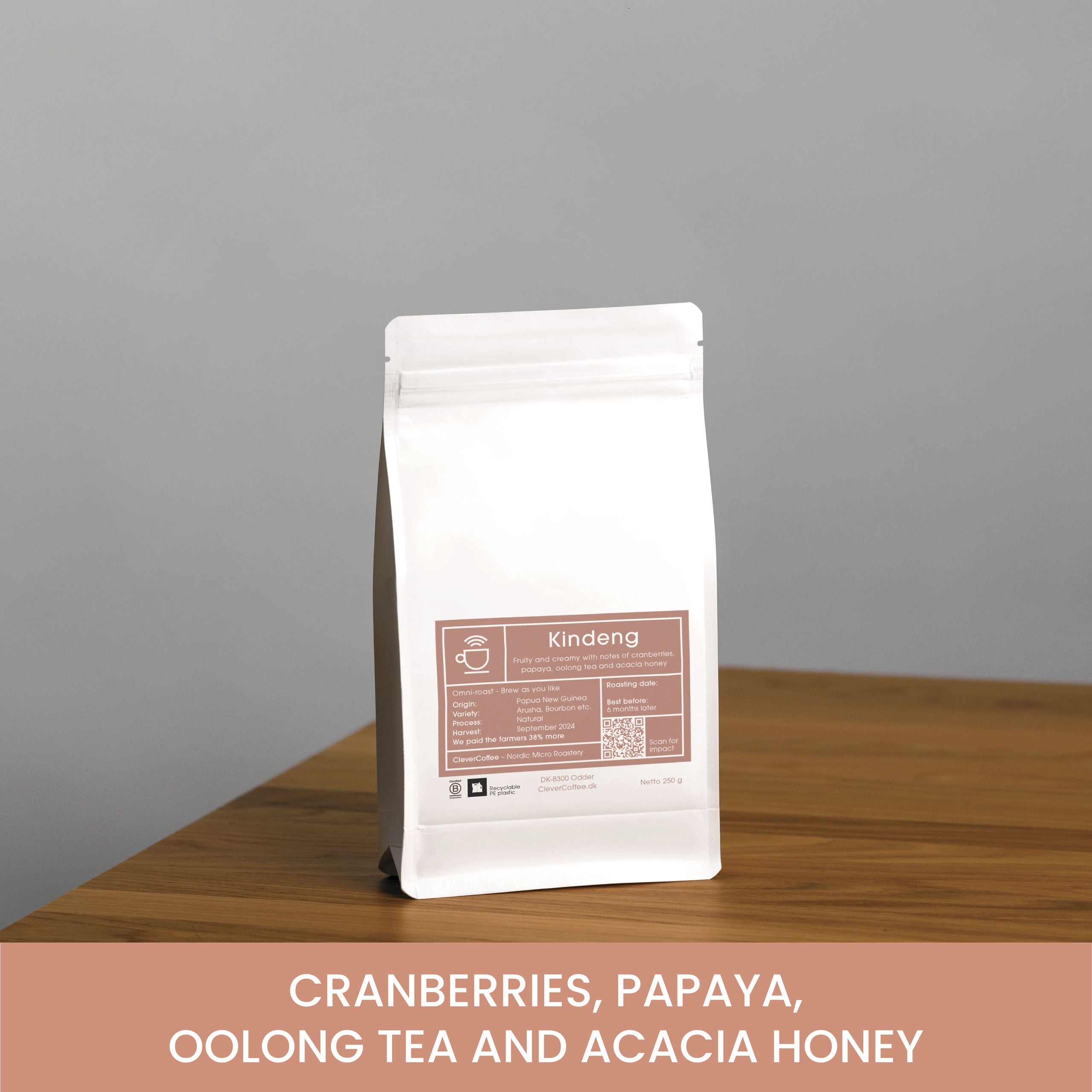
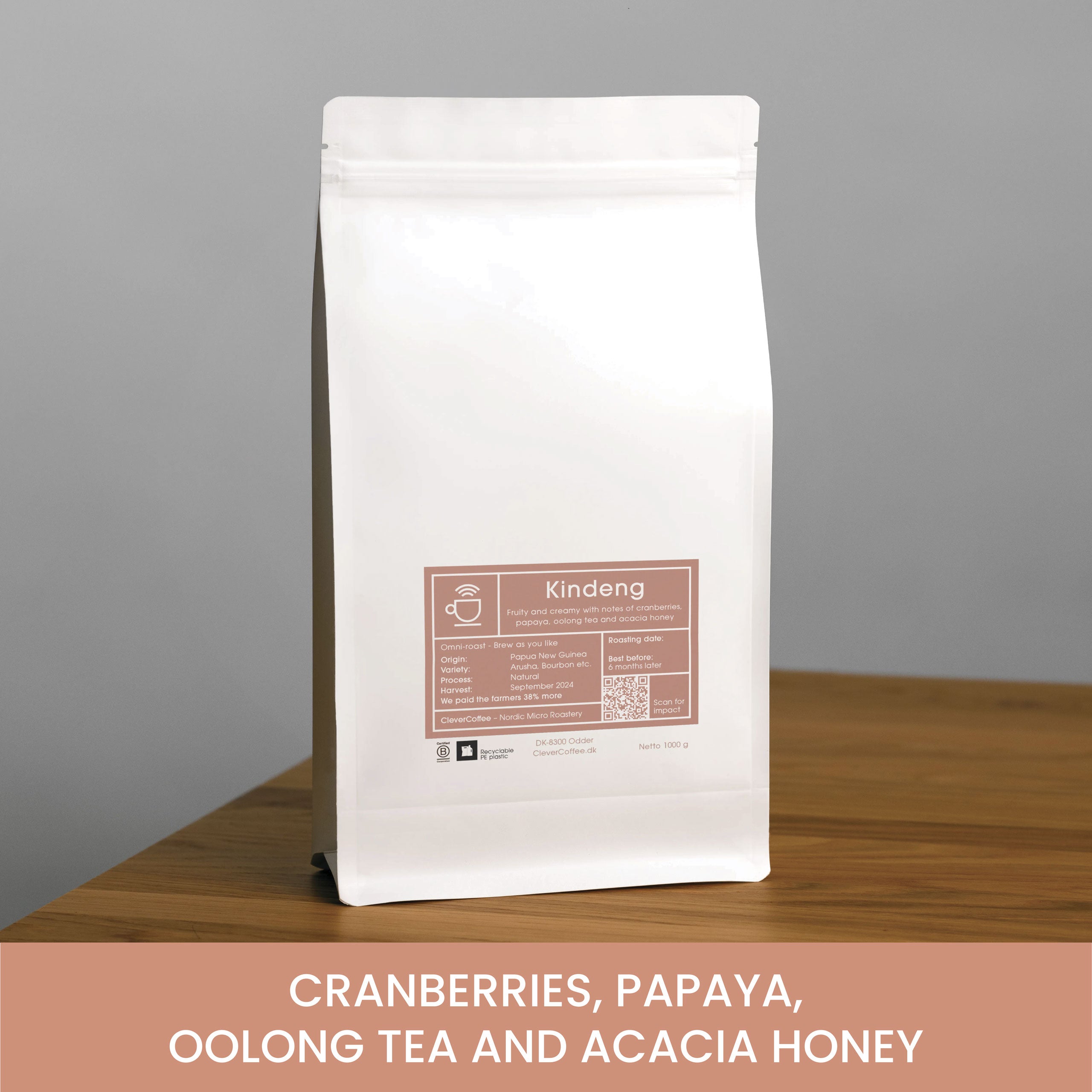
CleverCoffee
Kindeng - Papua New Guinea
Back in the day, a coffee from this origin sparked the interest of our Head of Coffee, Lindy, in specialty coffee which led him to dive into the world of coffee.
We are happy to present Kindeng from Papua New Guinea!
- Origin: Papua New Guinea
- Processing: Natural process
- Tasting notes: Fruity and creamy with notes of cranberry, papaya, oolong tea and acacia honey
Omni-roasted coffee beans - brew any way you like
CleverCoffee is a B Corp
The coffee you buy at CleverCoffee leaves a well-documented, positive imprint on the world.
When CleverCoffee became B Corp certified in 2021, it was with a score of 88.2.
In 2025 - four years later - we have almost doubled our score to 154.6 points.
This means that CleverCoffee has the highest score among all coffee companies in the EU - and the second highest score for all companies in the Nordic region.
In our opinion, B Corp certification is the world's most stringent independent certification, guaranteeing that you buy your coffee from a responsible company.
As a customer at CleverCoffee, you contribute to ensuring that coffee farmers can live a life above the poverty line and that they can afford to develop their farms so that they have a long-term source of income.
In addition to contributing positively to the living conditions of coffee farmers, CleverCoffee's B Corp certification is your assurance that we are always transparent and have a drastically reduced climate impact.
What was our score?
With our 2025 recertification we received the following score:
- Governance 19.5
- Workers 25.5
- Community 32.5
- Environment 73.4
- Customers 3.6
Total: 154.6
Documentation
This coffee is grown in agroforestry
This roughly means that the coffee plants are shaded by other trees and plants. Agroforestry is the opposite of what is called “monoculture”, where you have a field that only consists of one type of plant, for example coffee plants.
In a forest farm, the coffee plants are part of a system with animals and plants that live naturally in the area.
There are many different types of agroforestry. There can be different amounts of shade cover, different degrees of diversity in plants and animals, and one can, for example, talk about having several different layers of shade cover, with trees that have their crowns at different heights and thus several layers.
Why agroforestry?
Since 1990, an estimated 420 million hectares of forest have been cleared and converted to agriculture, including coffee plantations. Although the rate of deforestation has slowed in recent decades, significant deforestation continues. About 10 million hectares of forest are cleared each year - an area the size of Iceland.
Therefore, we need to do something.
Forestry is a really good solution for both having food production and at the same time taking care of our ecosystems and climate.
Here are just some of the benefits of agroforestry:
- Increases biodiversity
- Absorbs much more CO2 from the atmosphere
- Minimizes the need for fertilizer
- Make coffee plants more resilient
- Extends the life of the coffee plant
- Gives the coffee a higher quality and better taste, as the coffee cherries take longer to ripen in the shade
- Better soil conditions
- Creates a microclimate that makes plants more resistant to climate change
Read more:
A short and transparent supply chain
We always work with as short and transparent a supply chain as possible. 98% of our coffee is purchased directly from the coffee farm, without using a middleman.
This coffee is an exception, as we have used a transparent importer to bring the coffee home.
The vast majority of our roasted coffee is also purchased directly from us - with the exception of a few retailers, such as coffee shops and specialty stores. You cannot buy our coffee in any large chains or on online marketplaces.
This means that there are fewer parties who have to "have a piece of the pie" and we ensure better payment for the coffee farms, which have been underpaid and living in poverty for decades.
The supply chain for this coffee looks like this:
- The coffee is grown in Papua New Guinea's Western Highlands area
- The coffee berries have been processed at the Kindeng Dry Mill drying station
- The green coffee beans are imported to Europe by Cafe Imports
- The green beans have then been transported to CleverCoffee.
- The coffee is roasted and packaged at CleverCoffee in our own roastery outside Aarhus.
We paid the coffee farmer 38% more for this coffee
...in comparison, Fairtrade certified coffee typically has a premium of less than 10% for the farmer. And the certification is not free either.
Research shows time and again that certifications such as Fairtrade and Rainforest Alliance have no demonstrable positive effect on the living conditions of coffee farmers. (Cordes and Sagan, 2021)
Western coffee companies are making huge profits while coffee farmers around the world live in poverty. This is wrong, and we need to change that.
That's why we pay more for the coffee beans we import.
44% of coffee farmers worldwide still live in poverty. At least 5.5 million coffee farmers live below the international poverty line of $3.20 a day. Studies show that one-third of coffee farmers earn less than $100 annually from coffee production (Enveritas, 2018; Sachs et al., 2019).
When we pay farmers more, we give them the opportunity to invest in themselves and their businesses. This leads to further growth and the opportunity to invest in more sustainable farming practices such as reducing water use and reforestation projects.
The calculation:
We paid $10.85/kg for the coffee (FOB).
The market price at the time of the contract was $7.88/kg.
This means that we have paid 38% above the market price for this particular coffee. (Note: There have previously been other numbers here, which were the result of a miscalculation. We apologize - the error has now been corrected.)
Documentation
See the complete overview of the payments we have made for our coffee beans in our annual transparency report: CleverCoffee: Transparency Report
Sources
"Responsible Coffee Sourcing: Towards a Living Income for Producers" (Cordes and Sagan, 2021)
"Why do coffee farmers stay poor? : Breaking vicious circles with direct payments from profit sharing" (Ruben, 2023)
"Six Transformations to Achieve the Sustainable Development Goals (SDGs)" (Sachs et al., 2019)
Taste the World
Coffee on Subscription
Get a new freshly roasted coffee delivered to your door every single month and get access to exclusive releases.

